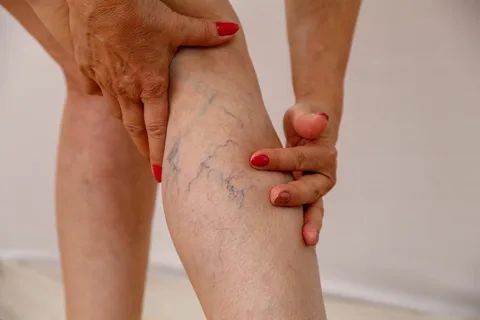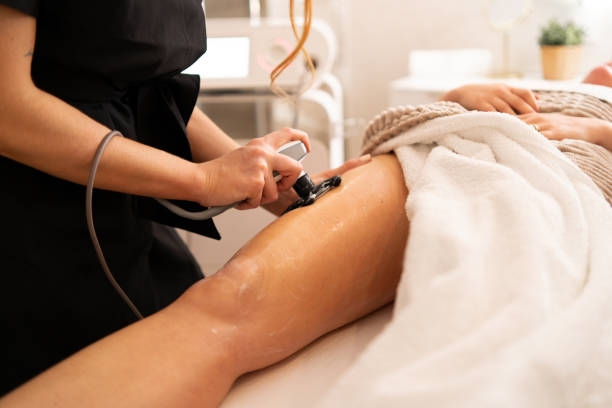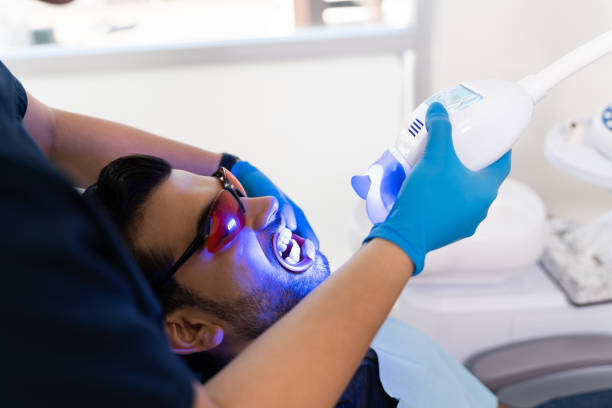Maintaining healthy circulation is essential to overall wellness. The circulatory system ensures that blood, oxygen, and nutrients are delivered to all parts of the body, while also removing waste products. However, when veins become damaged or dysfunctional, this system is compromised, leading to poor circulation, pain, and other health issues. Fortunately, vein management treatments offer effective solutions to these problems.
In this article, we’ll explore how vein management treatments can improve circulation and reduce pain, with a particular focus on Vein Management in New Jersey, where specialized care is readily available. We’ll also delve into various treatment options, their benefits, and what patients can expect from them.
What is Vein Disease?
Vein disease, also known as venous insufficiency, occurs when the veins in your body are unable to effectively return blood to the heart. This is usually caused by the weakening or damage of the valves within the veins, leading to blood pooling or flowing backward, particularly in the legs.
Common Types of Vein Problems
- Varicose Veins: These are enlarged, twisted veins that are often visible under the skin. They are not only unsightly but can also cause discomfort, swelling, and even more severe complications if left untreated.
- Spider Veins: These are smaller, web-like veins that appear close to the surface of the skin. While generally not painful, they can indicate underlying circulatory issues.
- Deep Vein Thrombosis (DVT): This is a serious condition where blood clots form in the deeper veins, often in the legs. DVT can lead to life-threatening complications such as pulmonary embolism if not addressed.
The Impact of Poor Circulation on Health
When veins do not function properly, blood flow becomes sluggish, which can lead to a variety of health problems, including:
- Chronic Pain: The pressure caused by pooled blood in the veins can result in aching, throbbing, or burning sensations, especially in the legs.
- Swelling: Poor circulation often leads to fluid buildup in the legs and ankles, which can be uncomfortable and limit mobility.
- Skin Issues: Poor vein health can cause discoloration, itching, and even ulcers in severe cases.
- Fatigue: People with vein issues often experience leg fatigue, heaviness, and a general feeling of tiredness in the affected limbs.
Fortunately, vein management treatments can address these problems, helping to improve circulation and alleviate pain.
How Vein Management Treatments Improve Circulation
Vein management treatments aim to restore proper blood flow by addressing the underlying causes of vein disease. There are several minimally invasive procedures available today that not only enhance circulation but also reduce or eliminate pain.
1. Sclerotherapy
Sclerotherapy is one of the most common vein management treatments. In this procedure, a medical solution is injected directly into the affected veins, causing them to collapse and be reabsorbed by the body. This redirects the blood flow to healthier veins, improving circulation.
- Benefits of Sclerotherapy:
- Minimally invasive
- Quick recovery time
- Can be done in an outpatient setting
- Effective for both spider veins and small varicose veins
Patients who receive Vein Management in New Jersey often report a noticeable improvement in their symptoms, including reduced pain and swelling, within weeks of treatment.
2. Endovenous Laser Treatment (EVLT)
Endovenous Laser Treatment, or EVLT, is a more advanced procedure that uses laser energy to close off larger varicose veins. A small laser fiber is inserted into the vein, and the heat from the laser causes the vein walls to collapse and seal shut.
- Benefits of EVLT:
- Effective for larger veins
- Performed under local anesthesia
- Immediate improvement in circulation
- Short recovery time
For patients dealing with severe varicose veins, EVLT in New Jersey can be a highly effective option, improving circulation while also reducing pain and discomfort.
3. Radiofrequency Ablation (RFA)
Radiofrequency Ablation is similar to EVLT, but instead of laser energy, it uses radiofrequency energy to heat and close the vein. The procedure is minimally invasive and often results in little to no downtime.
- Benefits of RFA:
- Highly effective for chronic venous insufficiency
- Minimal discomfort
- Quick recovery, with many patients returning to normal activities the next day
RFA is a popular choice for those seeking Vein Management in New Jersey, especially for individuals who have not responded to other treatments.
4. VenaSeal Closure System
VenaSeal is a relatively new, innovative treatment that involves using a special medical adhesive to seal the diseased vein. This procedure requires no heat or injections of numbing agents, making it a comfortable and convenient option for many patients.
- Benefits of VenaSeal:
- No need for anesthesia
- Minimal post-treatment discomfort
- Rapid improvement in symptoms
- No need for compression stockings after the procedure
With Vein Management in New Jersey, the VenaSeal system offers a groundbreaking alternative for patients looking for a non-thermal, non-surgical solution to vein problems.
Reducing Pain Through Vein Management Treatments
One of the most significant advantages of vein management treatments is their ability to alleviate the pain associated with vein disease. Each of the above-mentioned treatments targets the root cause of pain—poor circulation—and works to restore proper blood flow.
How Treatment Reduces Pain:
- Decreased Pressure: By eliminating or sealing malfunctioning veins, treatments reduce the pressure that causes aching and throbbing sensations in the legs.
- Reduced Swelling: Better circulation prevents fluid buildup, leading to less swelling and discomfort.
- Improved Mobility: As pain and swelling decrease, patients often find it easier to walk and engage in physical activity, further promoting healthy circulation.
- Healing of Skin Issues: Ulcers, itching, and discoloration caused by vein disease are often alleviated once proper blood flow is restored.
Many patients in New Jersey seeking vein management report significant improvements in their pain levels after treatment, enabling them to lead more active, comfortable lives.
What to Expect from Vein Management Treatments
For those considering Vein Management in New Jersey, it’s important to understand what the process involves. Most vein treatments are performed on an outpatient basis and require minimal downtime. Here’s what to expect:
Initial Consultation
During the initial consultation, your vein specialist will assess the severity of your condition using ultrasound imaging and other diagnostic tools. Based on this evaluation, they will recommend the most appropriate treatment option for you.
The Procedure
Most vein management treatments are minimally invasive and take less than an hour to complete. Local anesthesia is typically used, and the procedures are generally painless.
Recovery and Results
Patients can usually return to normal activities within a day or two. Compression stockings may be recommended after certain treatments to aid in the healing process. Visible results may take a few weeks, but pain relief and improved circulation are often experienced shortly after the procedure.
Conclusion
Vein management treatments offer an effective solution for those suffering from poor circulation and the pain associated with venous insufficiency. With advancements in minimally invasive techniques such as sclerotherapy, EVLT, and radiofrequency ablation, patients can improve their circulation, reduce pain, and enhance their quality of life.
If you’re looking for professional and specialized Vein Management in New Jersey, rest assured that experienced specialists in the area are well-equipped to offer state-of-the-art treatments tailored to your individual needs. Improving your vein health is just a consultation away!








